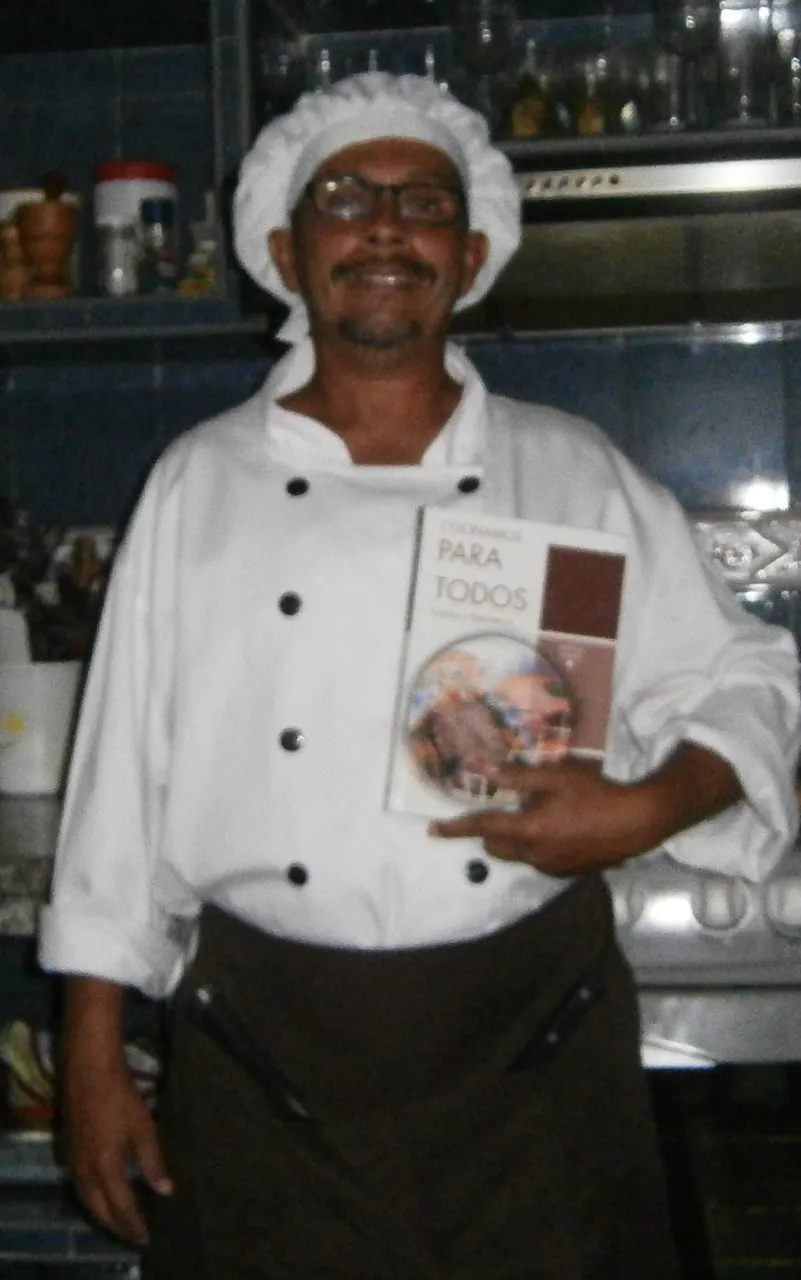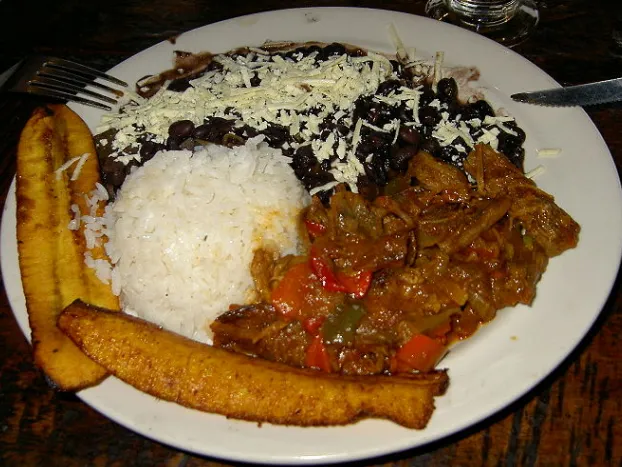Hola comunidad, mi nombre es Jose Luis Acosta, vivo en Barquisimeto Estado Lara de Venezuela, soy técnico medio en informática y chef, aficionado al boxeo, a la música llanera de mi país, me gusta tocar maracas y la lectura. Desde muy joven me ha gustado mucho la cocina, inventaba recetas de comida y se las preparaba a mi familia y amistades y quedaban fascinados por eso decidí hacerlo profesionalmente. En mi blog quiero compartirle y enseñarles hacer platos típicos de mi país y otras recetas, espero que sea de su agrado y me apoyen.
Hello community, my name is Jose Luis Acosta, I live in Barquisimeto, Lara State, Venezuela, I am a technician in computer science and a chef, I like boxing, the music of my country, I like to play maracas and reading. Since I was very young, I have loved cooking, I used to invent recipes and prepare them for my family and friends and they were fascinated by them so I decided to do it professionally. In my blog I want to share with you and teach you how to make typical dishes from my country and other recipes, I hope you like it and support me.

La gastronomía de mi tierra que es el estado Lara es muy especial, debido a que los habitantes de este estado tenemos una sazón muy peculiar. Es por ello que las comidas típicas de este estado se caracterizan por su gran variedad, son las más variadas de todo el territorio venezolano.
The gastronomy of my land which is the state of Lara is very special, because the inhabitants of this state have a very peculiar seasoning. That is why the typical foods of this state are characterized by their great variety, they are the most varied of all the Venezuelan territory.
Venezuela tiene varios platos representativos de carácter nacional como lo son: la arepa, el pan de jamón, el tequeño, el pabellón criollo y la hallaca típica en la época de navidad. Entre los platos regionales más representativos están la pisca andina, patacón asopado de marisco (fosforera), tostada caroreña, arepa andina, el pelao guayanés, torta de cazón entre otros.
Venezuela has several representative dishes of national character such as: the arepa, the ham bread, the tequeño, the creole pavilion and the typical hallaca at Christmas time. Among the most representative regional dishes are the pisca andina, patacón asopado de marisco (fosforera), caroreña toast, arepa andina, pelao guayanés, torta de cazón among others. That is why the typical foods of this state are characterized by their great variety, they are the most varied of all the Venezuelan territory.

El pabellón criollo es un plato tradicional de Venezuela reconocido como el plato nacional por excelente, era la comida de negros y esclavos que formo parte de la gastronomía venezolana. El pabellón criollo tradicional está compuesto por arroz blanco cocido, carne mechada, carotas (frijoles) negros y tajadas de plátano maduro frito.
La historia del pabellón data de los tiempos de la colonia, probablemente de siglo XVIII y según se cuenta es básicamente una reunión de “sobras” de comidas anteriores realizada por los esclavos de las haciendas, así la carne, el arroz y las caraotas negras generalmente databan de un día anterior o dos, siendo las tajadas de plátano lo único que se preparaba en el momento.
The Creole pavilion is a traditional dish of Venezuela recognized as the national dish for excellence, it was the food of blacks and slaves that was part of the Venezuelan gastronomy. The traditional pabellón criollo is composed of cooked white rice, shredded meat, black carotas (beans) and fried ripe plantain slices.
The history of the pavilion dates back to colonial times, probably from the 18th century and according to the story it is basically a gathering of "leftovers" from previous meals made by the slaves of the haciendas, so the meat, rice and black beans generally dated from a previous day or two, being the banana slices the only thing prepared at the time.
Gracias por visitar mi blog dios me los bendiga. Y regalo una frase.
Thank you for visiting my blog, God bless you. And I give away a phrase.
Las oportunidades no son producto de la casualidad, más bien son resultado del trabajo.
Opportunities are not a product of chance, but rather the result of work.